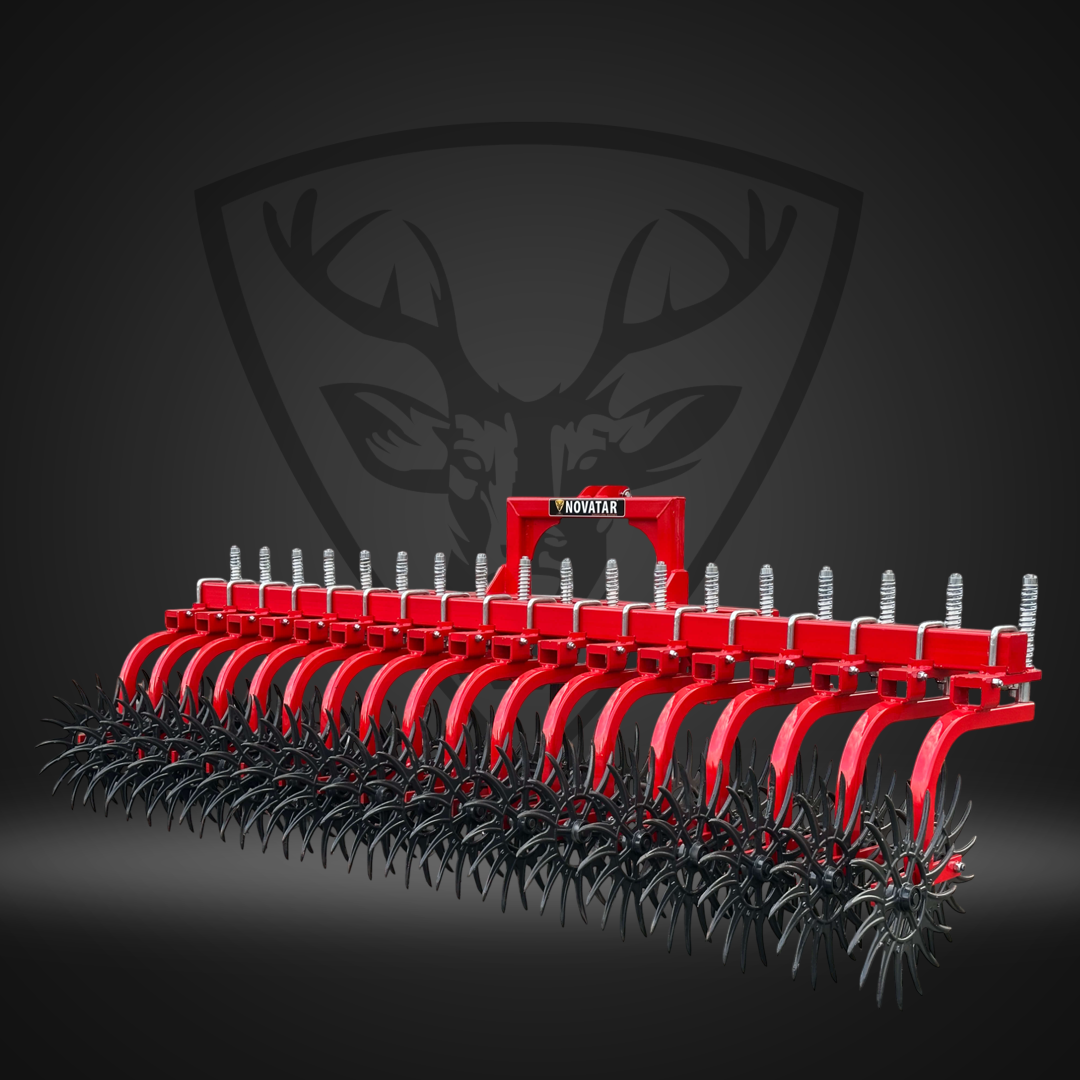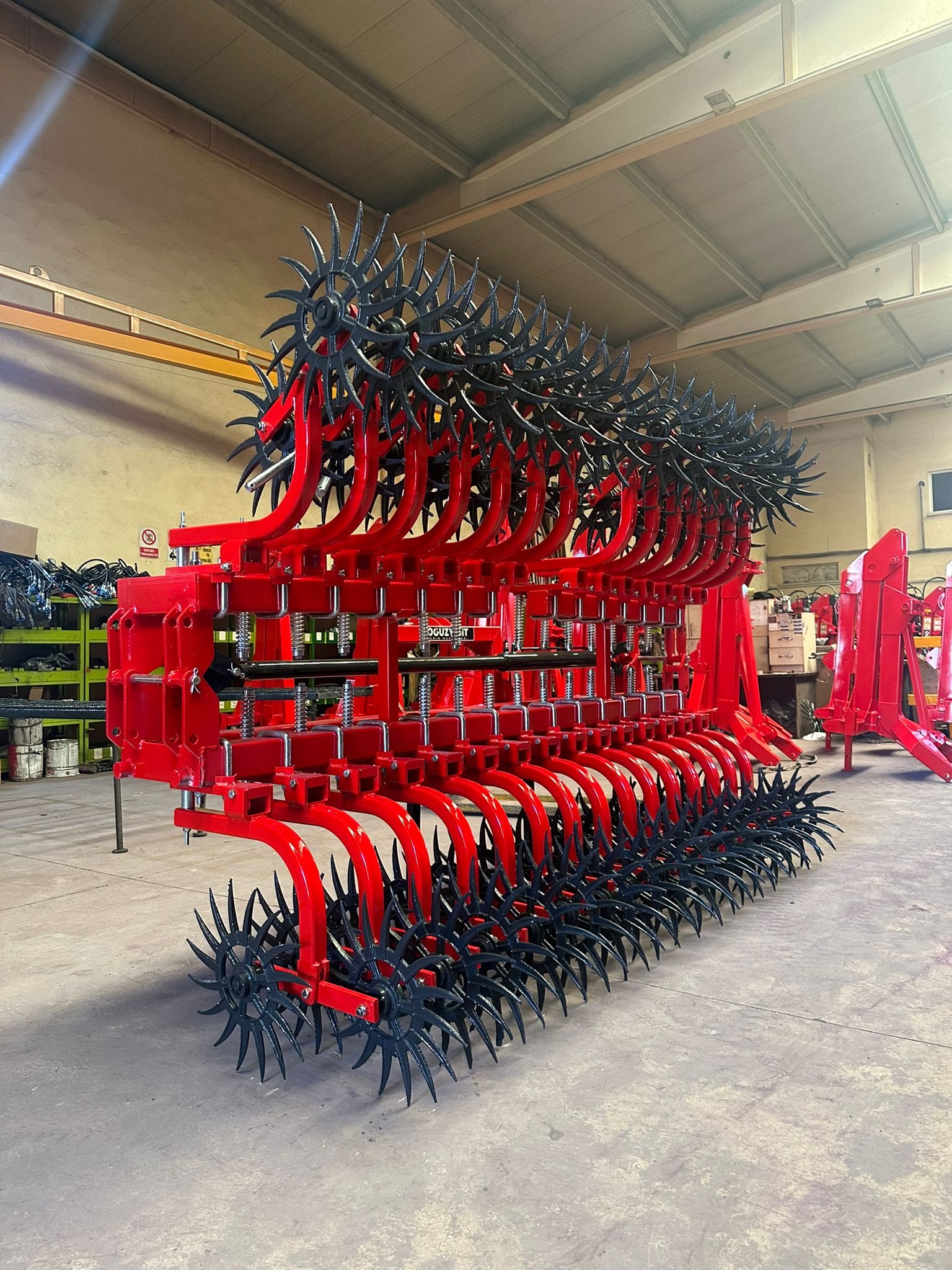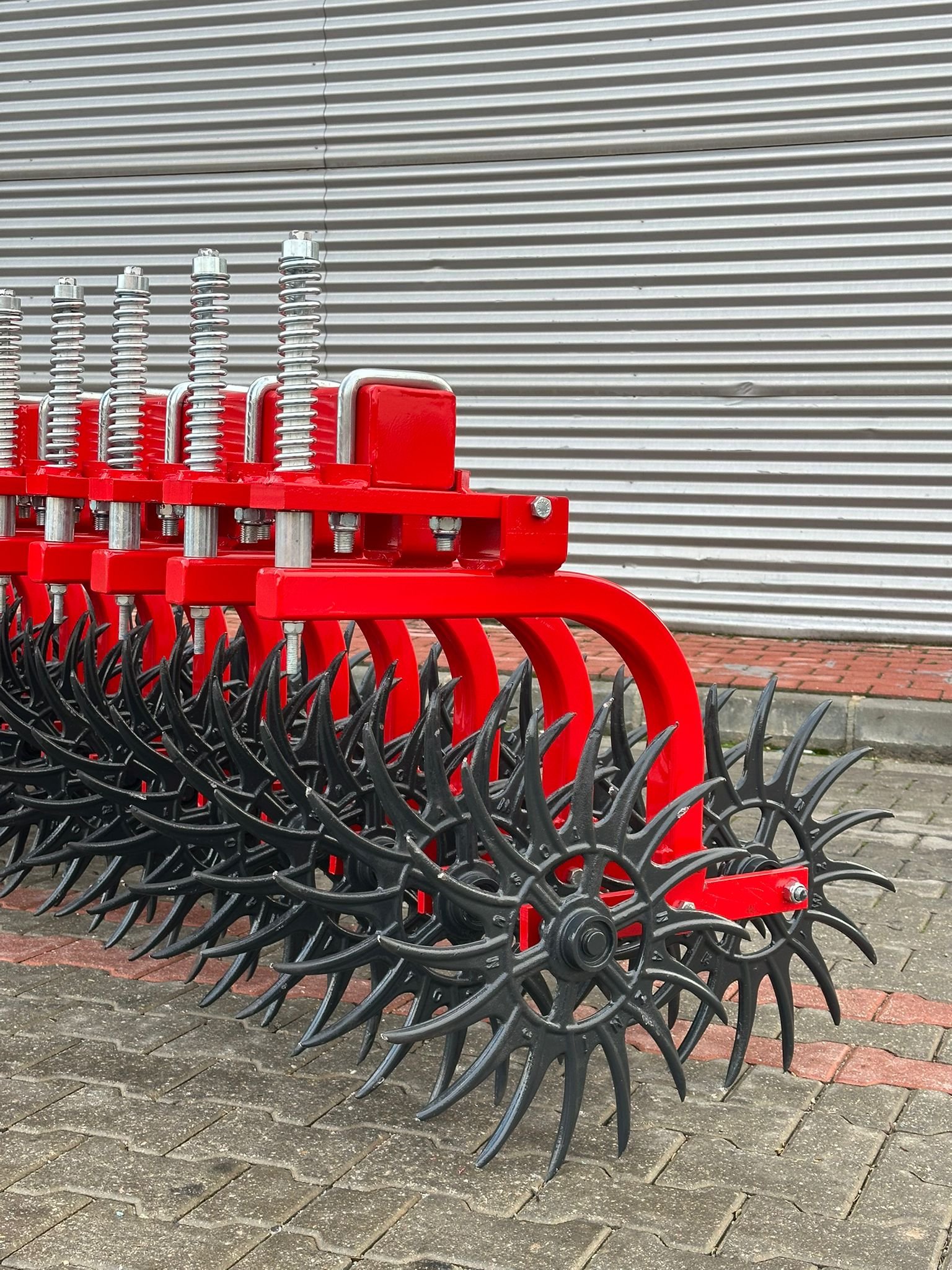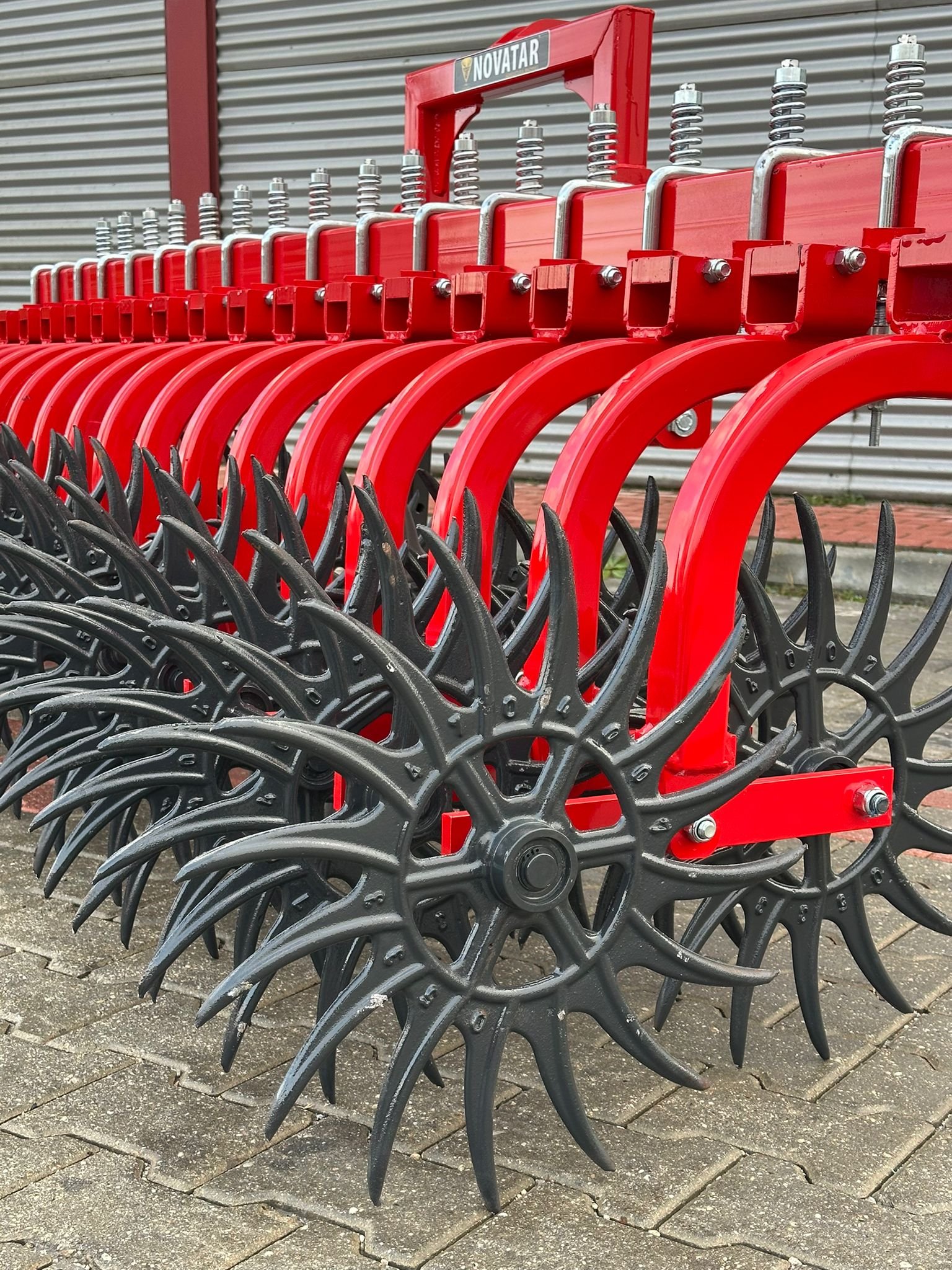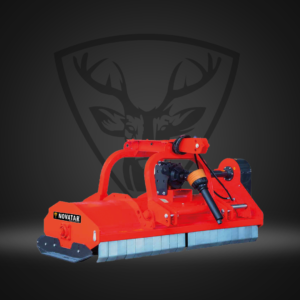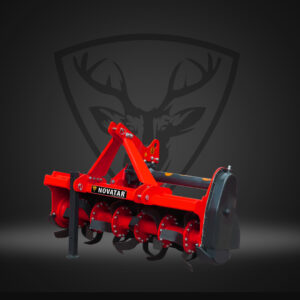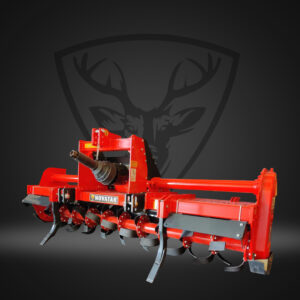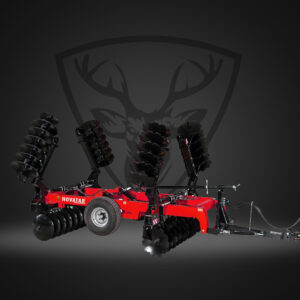| ROTARY HOE | UNIT | NVTRH-350 S | NVTRH-410 S | NVTRH-410 F | NVTRH-570 F |
| WORKING WIDTH | MM | 3500 | 4100 | 4100 | 5700 |
| STARS QUANTITY | QTY | 36 | 42 | 42 | 58 |
| STARS DIAMETER | MM | 500X500 | 500×500 | 500×500 | 500×500 |
| SPRING QUANTITY | QTY | 18 | 42 | 42 | 29 |
| SPRING LENGTH | MM | 225 | 225 | 225 | 225 |
| REQUIRED TRACTOR HP | HP | 50 | 55 | 60 | 80 |
| FOLDABLE OR STRAIGHT | – | Straight | Straight | Foldable | Foldable |
Rotary Hoe / Soil Crusher
Rotary Hoe / Soil Crusher
What is Rotary Hoe or aka Rotary Star?
The Rotary hoes are versatile tillage tools that can be used to accomplish many tasks such as controlling weeds that emerge shortly after planting, decreasing soil crusting, and enhancing crop emergence. These models gently flip soil and residue at the surface, unlike the older models that usually don’t handle heavy cornstalks or bunched of soybean stubble very well.
After the Rain
Soil crusting can occur following heavy rain, especially in soils with high silt content or conventionally tilled fields with little residue cover. Raindrops pack soil in a thick layer near the surface and the rapid drying cements this layer. Unfortunately when this happens, seeds struggling to push through this crust will continue to grow under the crust only until they run out of stored energy. The warmer the weather becomes, the faster the crusting should be dealt with. The timing of rotary hoe use is the key. It should be done before too many plants emerge to be damaged and also before the ground gets too hard for the hoe to work. But ideally, a single pass with a rotary hoe is enough to break up the soil around the seed and ease the emergence process.

